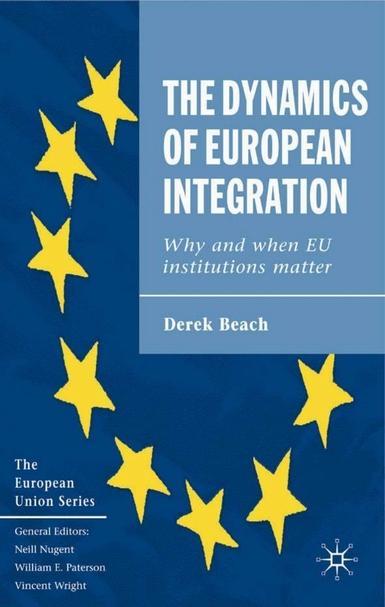The Dynamics of European Integration - Why and When EU Institutions Matter
Derek BEACH
Availability: Out of stock - available in 10 open days
- Publisher: PALGRAVE-MACMILLAN
- Collection: Palgrave Macmillan - The European Union Series
- ISBN: 9781403936349
- Publication Date: 07/03/2005
- Binding: Paperback
- Number of pages: 320
Summary
A major new theoretical and empirical contribution to our understanding of the influence of EU institutions vis-á-vis governments in the major decisions about both widening and deepening the European Union. Engagingly written and based on significant new archival research and original interviews, Derek Beach offers both a new history of the major treaty negotiations of the EU and a new leadership model of European integration.
Reviews:
'This stimulating study looks behind and beyond many of the conventional accounts of key negotiations within the EU on issues of treaty reforms. Its insights contribute to a deeper understanding of the complex bargains through which crucial decisions are taken on controversial issues.' - Helen Wallace, Director, Robert Schuman Centre for Advanced Study, European University Institute 'Looking beyond the controversy between intergovernmentalists and supranationalists, Derek Beach's well-written new book makes an important contribution to the study of European integration. The theoretical approach provides an interesting perspective on the leadership potential of the EU institutions and his in-depth comparative analysis of the negotiation of every major IGC since 1985 provides new, interesting and sometimes even surprising insights into their respective influence but also in relation to the democratic deficit in the EU.' - Wolfgang Wessels, Jean Monnet Professor of Politics and European Studies, University of Cologne, Germany '[S]ystematic in its treatment and original in its findings...an innovative study...based on extensive archival work and interviews...The book's great strength is to elucidate leadership opportunities offered to supranational institutions through their capacity to minimise transaction and bargaining costs.' - Alistair Cole, The Times Higher Education Supplement '...brings important new insights into the complexities of the functioning of the EU'. - Marek Rybar, Political Studies ReviewTable of contents
Introduction
Why and When EU Institutions Matter
Negotiating the Single European Act
Negotiating the Treaty of Maastricht
Negotiating the Treaty of Amsterdam
The Negotiation of the Treaty of Nice
Negotiating the Constitutional Treaty
Negotiating the Fifth Enlargement
Conclusions
